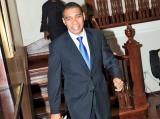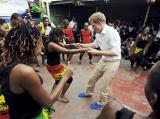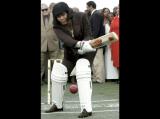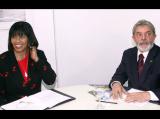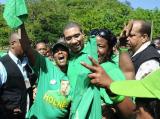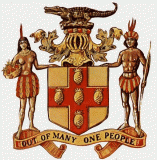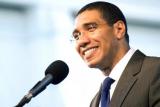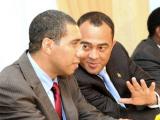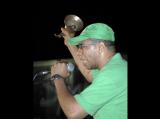Columns By Category
Popular Articles
- THE REALITY OF TACKY AND SAM SHARPE
- PLEASE DON’T BETRAY US AGAIN POLITICIANS
- CRY, MY MURDEROUS COUNTRY
- MODERNIZING THE PNP: VERSION.2020
- IS THE EXCHANGE RATE ON TARGET OR IS IT A WHOPPER?
- CARICOM: BEACON OF DEMOCRACY OR COWARDLY DISGRACE?
- DEMOCRACY PREVAILS IN THE UNITED STATES
- THE CRIME STATISTICS SPEAK FOR THEMSELVES
- PETROJAM, OIL PRICES, AND THE $7 TAX
- Kevin O'Brien Chang | Brains, not brutality – smart(phone) crime fighting
- TERRORISM IN JAMAICA
- STOP CURRENCY CRISIS TALK
- 'CASTIGATED KD' AND THE 9 YEAR WONDER
- GET PAST MERE TALK ON DONS AND GARRISONS
- LOW VOTER TURNOUT MYTHS AND ELECTION PREDICTIONS
- HOW GREAT CAN BROGAD BE?
- PNP WAS SOCIALIST FROM THE START
- AN AGE AND GENDER RE-ALIGNMENT ELECTION?
- Most influential Jamaican of 2010-2019?
- NO GAYLE, NO RUSSELL, NO TALLAWAHS
Kevin O'Brien Chang
Content Posted by Kevin O'Brien Chang
CAN PRINCE ANDREW LEARN FROM QUEEN PORTIA?
- Article
- By Kevin O'Brien Chang
- April 1, 2012
- 2012 Articles, Politics
- No comments
3 MILLION-PLUS CHEERS FOR THE QUEEN
- Article
- By Kevin O'Brien Chang
- March 11, 2012
- 2012 Articles, Politics
- No comments
"Puma on track for millions of pounds' worth of free publicity as images of Prince Harry posing with Usain Bolt go global." - The Guardian, March 7, 2012
Well, however much that tiny logo on Harry's shirt earned Puma, it cannot be close to the windfall that big Jamaica on his chest brought to this country. No doubt the picture and video of King Usain and the Prince doing 'the arrow' will also be a poster child for the 2012 London Olympics.
The entire Jamaican tourist industry must be grinning ear to ear, and those myopic 'stop waste the $3 million pon white man colonialist and feed poor people' grandstanders must feel rather foolish now.
Big Shot, Portia!
- Article
- By Kevin O'Brien Chang
- February 26, 2012
- 2012 Articles, Politics
- No comments
At last, someone with clout has stood up for us long-suffering West Indies fans. God only knows why the previous administration so ignored an issue so dear to the hearts of so many - it certainly was not because of a lack of complaints from those who care.
But better late than never, and Prime Minister Portia Simpson Miller's firm presentation of the facts has finally brought to the fore the issues strangling cricket around the West Indies, and especially in Jamaica.
Cricket in this country has never been at a lower ebb. Crowd attendance at schoolboy and club cricket is virtually non-existent. At regional matches, gatherings of over 500 are now considered 'large'.
Can Portia Be Jamaica's Lula?
- Article
- By Kevin O'Brien Chang
- January 8, 2012
- 2012 Articles, Politics
- No comments
The global financial recession is battering incumbents everywhere. In the last two months, the governments of Slovenia, Croatia, St Lucia and Spain have been booted, those in Guyana and Russia lost their 50 per cent majorities, and those in Greece and Italy resigned to avoid electoral humiliation. Only strong commodity-export economies like New Zealand have bucked the trend.
Every English-speaking Caribbean election since 2010 has seen a big anti-incumbent swing.
CELEBRATING DEMOCRACY - JAMAICAN STYLE
- Article
- By Kevin O'Brien Chang
- December 18, 2011
- 2011 Articles, Politics
- No comments
First, some clarification is in order. In his December 11 Gleaner column, 'Duppy polls, obfuscation, ignorance and simpletons', Bill Johnson wrote, in reference to my December 4 Gleaner article titled 'Political polls and PM promises':
"Let me make it perfectly clear: the 2002 poll prominently cited by Chang in his column as mine was not conducted by me, if, in fact, it was conducted by anybody at all."
Political polls and PM promises
- Article
- By Kevin O'Brien Chang
- December 4, 2011
- 2011 Articles, Politics
- No comments
Bill Clinton allegedly remarked that "politics is about polls and focus groups", and it certainly worked for him. Mr Clinton's research-based ability to 'feel their pain' created a bond with the American people that even Monica Lewinsky never broke, and he remains the most popular president since Ronald Reagan.
Whether his Jamaican counterparts take such a scientific approach to politics, I can't say. One problem is that our pollsters are few, and have a mixed record. The Stone polls were extremely accurate for every general election between 1976 and 1997, but went astray in 2002.
Dreaming of a New Jamaica
- Article
- By Kevin O'Brien Chang
- November 20, 2011
- 2011 Articles, Jamaica, Politics
- No comments
All political lives, unless they are cut off in midstream at a happy juncture, end in failure, because that is the nature of politics and of human affairs. - Enoch Powell
Powell was probably right in a short-term sense. Democratic political careers are usually ended by death, illness, scandal-driven resignation, term limits, electoral defeat, or impending defeat. An elected leader voluntarily stepping down while basking in glory as voters beg him to stay is a vanishingly rare sight.
The Garrisons of Gordon House
- Article
- By Kevin O'Brien Chang
- November 13, 2011
- 2011 Articles, Politics
- No comments
"Both political parties have it within them to mutually agree to end the social construct of the garrison ... . Let us start the process by getting the leaders to walk together in these areas of exclusion ... . Hopefully, this small step will lead to other steps that will eventually remove garrisons from our political landscape." - Andrew Holness, October 23
Andrew Holness' potentially historic end-garrison-politics inauguration address has spurred much debate about what a garrison is, which constituencies are garrisons, and even if garrisons exist. Few have referenced probably the most significant document produced on the topic, namely, the 1997 Report of the National Committee on Political Tribalism, often called the Kerr Garrison Report.
A Chance for Transformation
- Article
- By Kevin O'Brien Chang
- October 16, 2011
- 2011 Articles, Politics
- No comments
In 10 days, Bruce Golding advanced Jamaican politics 10 years. He resigned as prime minister on September 25, then threw his weight behind the youngsters in his party, which led to 39-year-old Andrew Holness being proclaimed prime minister-designate on October 3.
Listening to the People
- Article
- By Kevin O'Brien Chang
- October 2, 2011
- 2011 Articles, Politics
- No comments
Democracy is about listening to the people, and Bruce Golding has listened to the people. For the last 18 months or so, the polls have shown that Jamaicans do not want him as prime minister. No doubt, at first, he hoped it was a temporary thing which time and hard work would change. But poll after poll showed the populace's sentiments had hardened, and the message remained the same - Bruce, you must go. And now he is doing so.
Copyright 2011 KEVINOBRIENCHANG.com. Developed by hbjamaica.com, Powered by HBCMS

